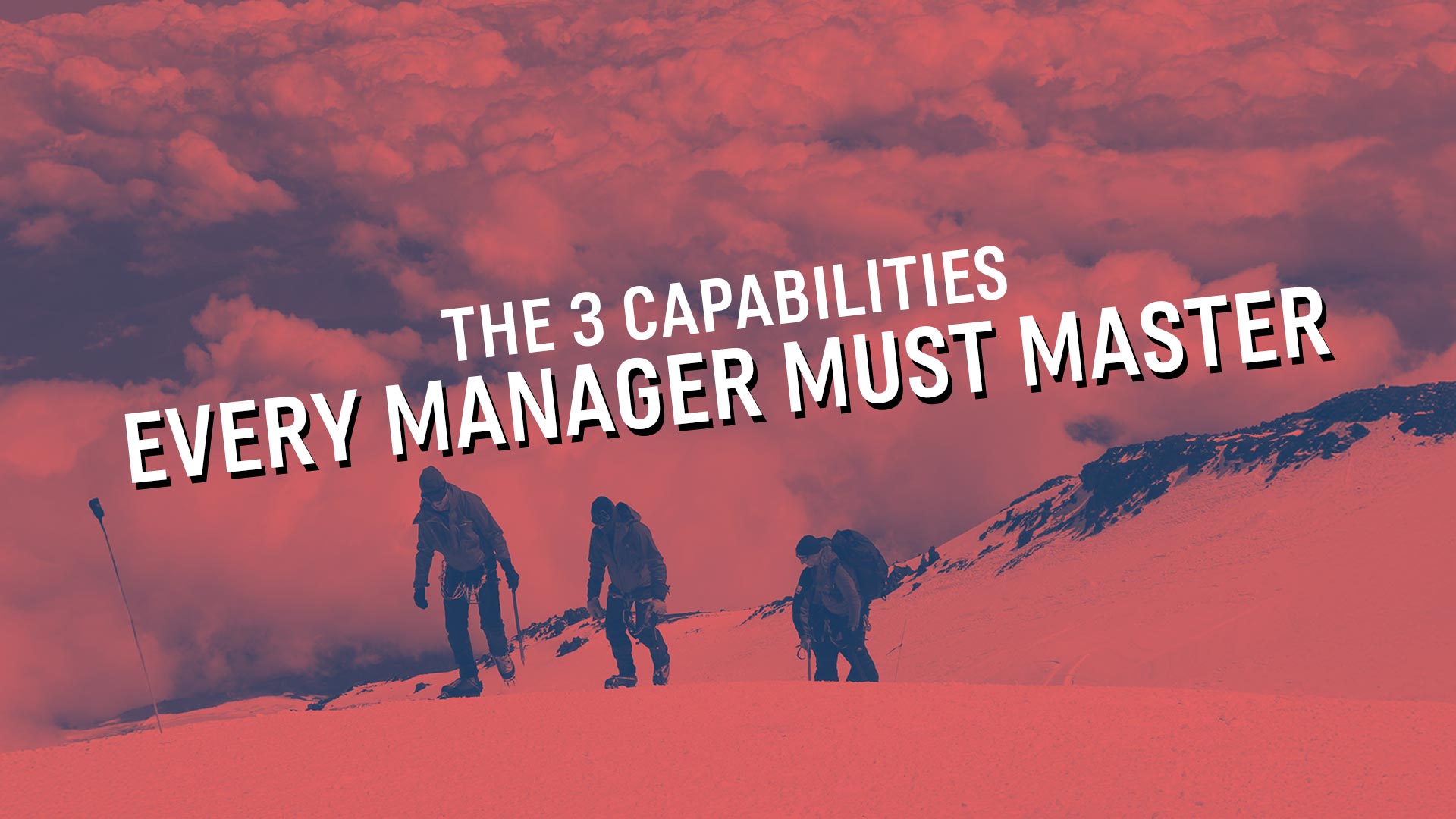Most managers don’t fail because they don’t care. They fail because they were never shown how to succeed. We see it all the time. High performers are often stepping into management roles without clear expectations, adequate support, or targeted development. These are your technically brilliant employees, now expected to lead others based solely on instinct.
Sure, motivation and effort are a huge part of the equation, but so is structure. Without a framework to guide their growth, even the most capable individuals risk becoming what we call accidental managers. Promoted without preparation, and left to figure it out while the stakes climb around them.
So what should we expect from a well-prepared manager? Through our research at Red Wolf Group, we have identified three essential capabilities we believe every manager must develop: Capability, Credibility, and Competency. We call this the 3C’s Framework.
We saw a need to support and developed a competency index to help managers and organisations do their best work. Developed through years of work with leaders across trade, health, education, and corporate environments, the index highlights three interconnected strengths that managers who consistently perform well and retain teams have developed. It offers a practical way to assess where managers are now, where the gaps are, and what targeted development will have the greatest impact.
These competencies are far from ‘soft skills’. They are management fundamentals. If one of them is missing, managers are more likely to rely on old habits, overfunction, or lose the trust of their team, even with the best of intentions.
Let’s revisit the 3C’s
1. Capability: The Mindset to Manage
Capability is what separates someone who simply does the work from someone who can enable others to do it. This means developing self-awareness, emotional regulation, and a willingness to reflect and grow. It’s not about having all the answers. It’s about being able to pause, listen, and adapt when the pressure is on.
Managers with capability do not just react to challenges, they also anticipate and address them. They zoom out, think critically, and coach others through uncertainty. They understand that management is not a natural extension of technical skill. It’s a shift in identity, from being the go-to expert to being the enabler of others. And that shift starts with a mindset.
2. Credibility: The Trust to Influence
Credibility is what earns a manager the trust to influence, not just instruct. Without it, direction feels one-sided and teams disengage. When credibility is strong, management becomes a partnership built on respect, consistency, and shared commitment.
Credibility is built when managers consistently show up, follow through on commitments, communicate clearly, and treat people fairly. It is eroded when feedback is inconsistent, accountability is uneven, or team members feel unseen or unheard.
A credible manager holds the tension between empathy and accountability. They do not need to be liked, but they are respected because their team knows where they stand. When trust is strong, conversations get easier, feedback becomes normalised, and people perform better not out of fear, but because they feel supported.
3. Competency: The Skill to Deliver
Competency is the practical side of management. It is what turns good intentions into effective action. This includes the core mechanics of managing others, from conducting structured one-to-ones to providing feedback, resolving conflict, setting clear expectations, coaching performance, and delegating effectively. It is not glamorous, but it is essential.
When competency is lacking, managers often default to doing the work themselves, relying on what they know. The result is bottlenecks, burnout, and disengaged teams. Competent managers know how to set their team up for success by making thoughtful, consistent decisions and building clarity in every interaction.
So, why do so many organisations still promote based on performance, rather than readiness?
Because in high-pressure environments, promoting the top performer feels efficient. It feels logical. In the short term, it is easy. However, research and lived experience indicate that this approach rarely yields long-term impact.
Promotion without preparation creates confusion. It undermines both the person promoted and the team they are trying to lead. It also sends the wrong message, that output matters more than people, and that management is earned through task completion, not through relational skill.
The good news? These three capabilities are learnable, repeatable, and scalable across teams.
We have seen it in every sector we work in. From trade businesses rethinking how they grow their supervisors, to health networks investing in values-based communication. When you build the 3Cs early, you not only reduce performance issues but also improve overall system performance. You unlock potential.
Managers who are supported to build capability, credibility, and competency do not just survive. They grow. They create environments where others grow too. These are the leaders who reduce turnover, build culture, and drive sustainable performance, all without burning out themselves or their teams.
If you are seeing signs of overwhelm, hesitation, or inconsistency in your managers, pause.
You may not have a performance issue. You may have an accidental manager. And that is not a signal for blame. It is a call for support.
Start with development, not discipline. Assess each manager’s strengths and gaps across the 3Cs. Provide the frameworks, language, and tools they need to manage with confidence, not just competence. When development is ongoing, not reactive, managers are more likely to grow with their team not away from them.
Ready to shift from accidental managers to intentional ones?
Let’s build the foundations together. Visit Red Wolf Group to learn more about how we support people-first management, one capability at a time.

